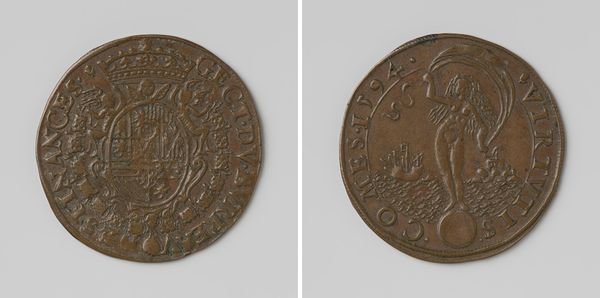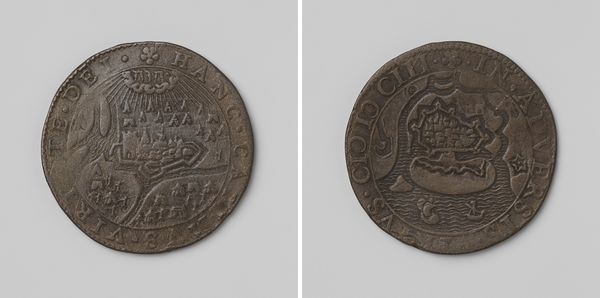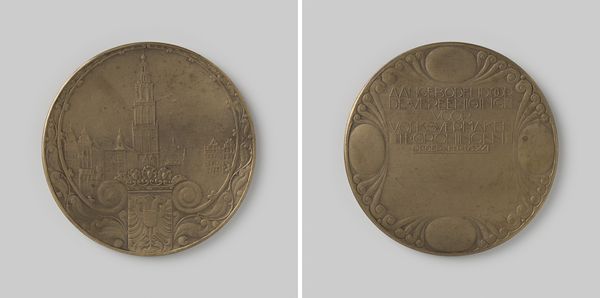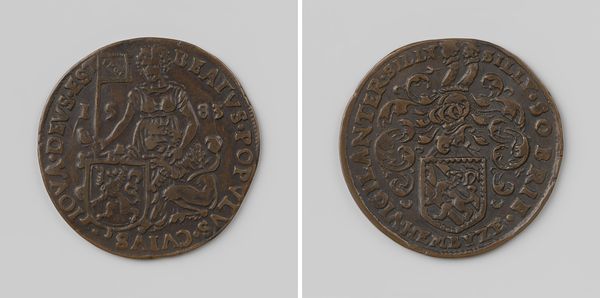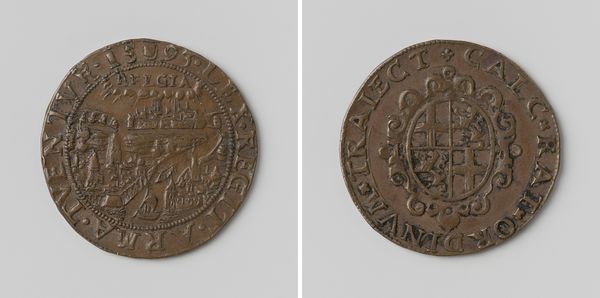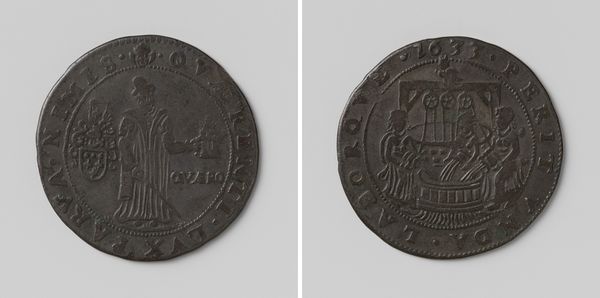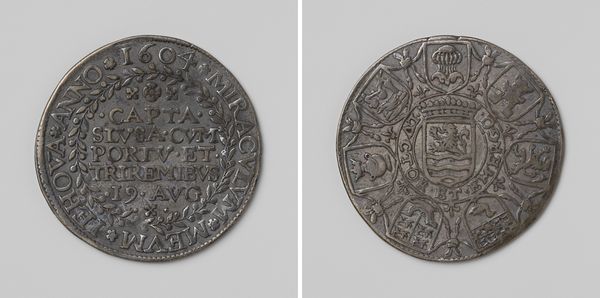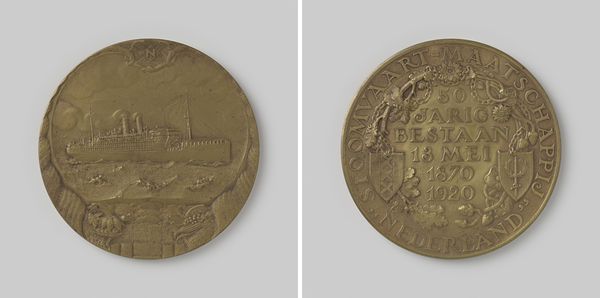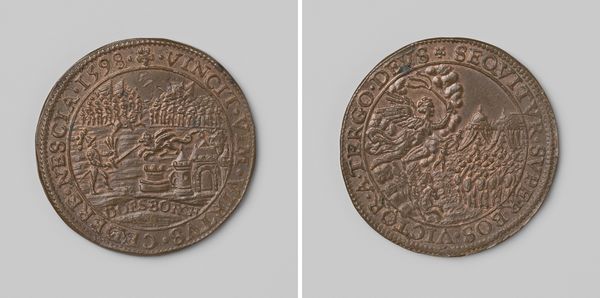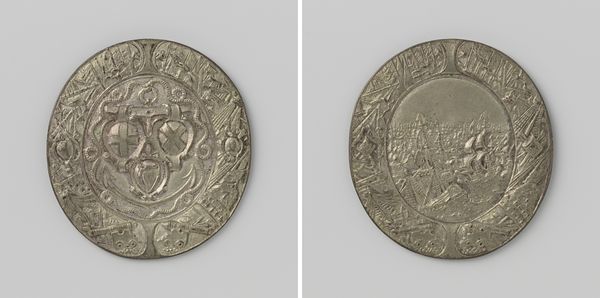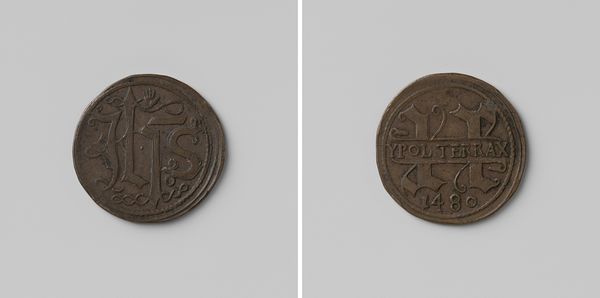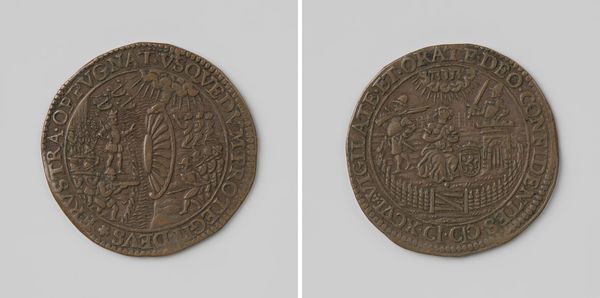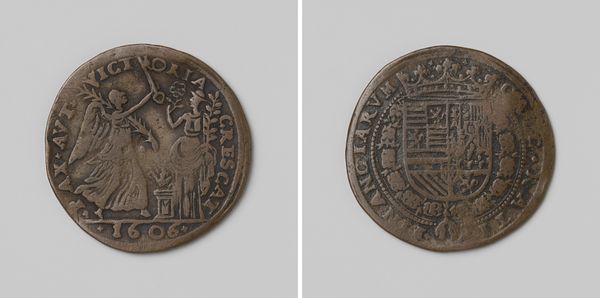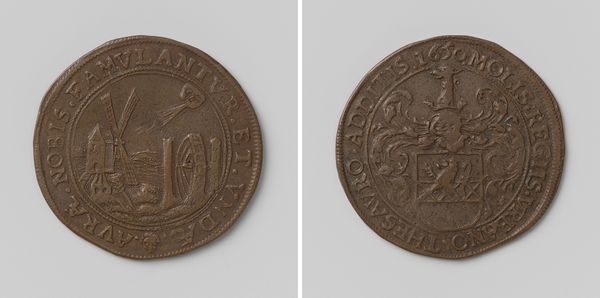
metal
#
portrait
#
metal
#
geometric
#
ancient-mediterranean
#
history-painting
Dimensions: diameter 3 cm, weight 5.65 gr
Copyright: Rijks Museum: Open Domain
This medal commemorates the capture of Sluis with its harbor and fleet, with text and laurel branches on one side and the city's coat of arms on the other. The laurel wreath, encircling the inscription, has been a symbol of triumph since ancient Greece, awarded to victors as a mark of honor. Consider, for instance, Apollo, often depicted with a laurel wreath, embodying victory and status. This potent symbol reappears throughout history, subtly shifting in meaning with each incarnation. What once represented mere military victory now begins to carry the weight of civilization, knowledge, and cultural superiority. The presence of the laurel speaks to a deeper, perhaps subconscious, desire for recognition and eternal remembrance. This is a recurring theme in human history, as cultures seek to immortalize their achievements, and these emblems of power evoke a feeling of pride and accomplishment. The laurel is not just a decoration, but a symbol laden with centuries of aspiration, continually reborn across epochs.
Comments
No comments
Be the first to comment and join the conversation on the ultimate creative platform.
